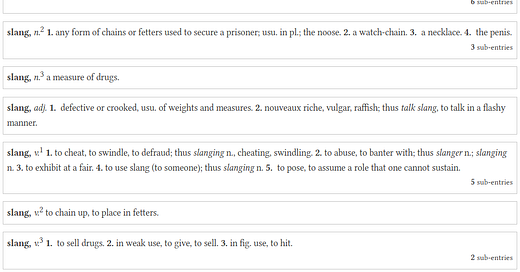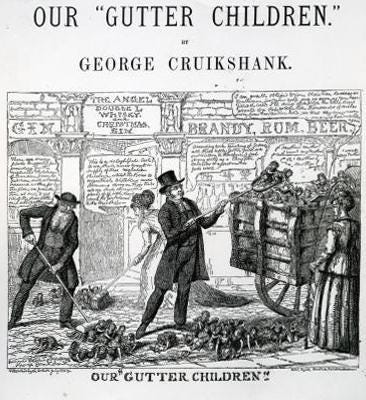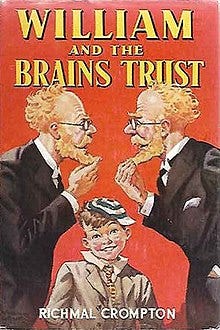I was invited recently to visit a college and talk about slang. This is not unknown, though much less common than once I think it was. What, however, was rarer yet, is that the context was less openly lexicographical - how did you get into it? what’s the hot new slang? what is your meaning of slang? that kind of thing - but more long-term cultural. In other words, given the concept of intangible cultural heritage, does slang, that rough-tough, corner-cupboard-ful of synonyms, pretty much devoted to the downsides of life, qualify.
Intangible cultural heritage (ICH) is a UNESCO term, and can be seen here. Among other explanations ‘it contributes to social cohesion, encouraging a sense of identity and responsibility which helps individuals to feel part of one or different communities and to feel part of society at large.’
Looking via my go-to database of standard words, the OED, I see that intangible is defined as ‘incapable of being touched; not cognizable by the sense of touch; impalpable’, and something that ‘cannot be grasped mentally.’ Meanwhile heritage, as used here, is explained as: ‘Characterized by or pertaining to the preservation or exploitation of local and national features of historical, cultural, or scenic interest, esp. as tourist attractions.’ It’s first use, as currently found, dates to 1970 and refers to a ‘heritage highway’, its defined by the writer as ‘a route which links places in the life of national figures.’ As for cultural, the most interesting link for me is the ultimate etymology of slang as a measure of land (thence a pedlar’s regular trudge) and the OED’s first definition of culture as ‘the action or practice of cultivating the soil.’ These days the best-known use seems to be as compounded with ‘wars’. Let us leave it there.
None of them, is anyone surprised, finds a role in the great counter-linguistic dust heap (see the ‘Golden Dustman’ Noddy Boffin of Dickens’ Our Mutual Friend, whose wealth resides in the garbage mountains he maintains in Battle Bridge, today’s King’s Cross.) When I think intangible I think gossamer and butterflies and ectoplasm1 and much else on those lines (of course there’s thought itself), and when I think heritage I default to worthy and middle-class, and earnest and wholesome and other terms which I have always ranked among my least beloved.2
What I think about slang’s own characteristics tends to the negatives. It may spring from certain groups and act as a unifying code, UNESCO’s ‘sense of identity’ even, that helps define ‘us’ and ‘them’, but social cohesion - I think not. As for ‘responsibility’, it’s another of the many virtuous words that are not, lit. or fig., in my dictionary.
Another absentee, but in this case a sort of tutelary umbrella, overhanging the entire enterprise, is sedition, which as we know ranges from full-on à la lanterne revolution, through to muttering with intent, to simple taking the mickey bliss, or to opt for its coarse equivalent, launchpad of the rhyming Mr B., the piss.3 The cussedness itch is strong in this one, and many others. Whatever the extent, we are, as a species, hard-wired in this way: you call it an established modus vivendi, we call it a load of bollocks. You tell it as you feel it should be, we look harder, perhaps a little askew, and tell it as it is. You pass laws to enforce your wishes, we work around them. Thus slang’s origins, thus slang’s necessary permanence. Slang may lack what those who decry it would term ‘standards’ but it has has some and honesty and clear-sightedness are among them. No academy school, where the obsessive control of speech (vocal and vocabulary) is dominant and slang is feared as once were witches and bogeymen, suggests prison rather than education, can change that. Call it a gutter tongue, condemn it to the sewers, and as sure as can be, manholes everywhere will be losing their covers.
So no, it is not that the slang lexis is in any way bad. Especially not when the judgmental adjective is harnessed to the noun language. Yes, this is the home of the obscene expletive, the dirty word, but there are only, I dunno, a dozen or so4 and all the rest is hard-wired, oft-reconfigured images and their never-ending synonymy.
As for alliances with intangible, cultural and heritage, as the philosopher C. E. M. Joad used to intone on British radio’s Brains Trust (1941-61), it all depends on what you mean by… This dictum, given its highbrow origins, gained a remarkable popularity, ascending to the status of national catchphrase. This was a peer of another, similar term plucked by the proles from the intellectual heights: semantics. The phrase for which you are searching is ‘verbal quibbling’ and beyond that ‘elitist smartarse(ry)’. In a land where articulacy is viewed askance, neither phrase nor noun is considered congratulatory. Rather it was hoped that those whose breadth of vocabulary was larger than average, who had ‘swallowed the dictionary’, might as soon as possible choke on it.
Given its preoccupations - sex, the bodily bits with which we do it, a hypermarket’s warehouse of drinks and a range of stimulants plucked from across the pharmceutical catalogue, and an unfettered march-past of wide-spectrum inter-human unpleasantness, be it personal or general and very much parading whatever might be the veteran stereotypes - slang always suggests the three-dimensional. That gutter tongue, perhaps, a touchee-feelee one undoubtedly. It can be witty and creative and undoubtedly cruel, but it never attains, or even attempts the ethereal. If it lacks a term that might be defined as ‘love’, it also falls short on sharing, caring and compassion. It is only words, confected of vowels and consonants, tongue and breath, but while you cannot weigh it, and those allegedly painless sticks and stones of which we hear are touted as being as lead-free in pencil terms as any domine do-little, this does not equate with intangibility. Fuck, one of five synonyms offered for sexual intercourse in John Florio’s Italian-English dictionary of 1598, survived its peers.5 Why? its onomatopoeic suitability, its evocation of the act wherein flesh slaps hard against flesh. Slang is anchored, maybe within a stinking, rancid sea of the distasteful, but the killick holds. Nothing, surely, more tangible. Simple stuff, basic, the aural distillation of the lexis of which it plays so well-known a role.
As I note, it all depends… I dismiss intangible, but cultural and heritage? For the first, the counter-culture would seem more appropriate. If the counter-culture is permitted to extend to working-class and criminal life, to non-white and non-heterosexual, indeed to any world that in its lexis works against or beyond the linguistic standard. As for heritage, slang is old. As old, I have always maintained, as speech. Or at least the speech of cities with their mixture of classes and thus varieties of language. The word itself and in its modern, linguistic meaning does not come on stream until the mid-18th century, but cities were long-established and with them their poorer areas and the language they spoke was not that of palace and wealth and bon ton. The problem is the lack of records, but that is another story. I have spent too many hours reading amongst pre-16th century texts to dismiss the regular appearance of terms that if they were not yet labelled, were unlikely to come in from the lexical and social cold. Slang, in time, would offer them succour. That is slang’s heritage, and it continues to evolve.
So: intangible, cultural heritage? Maybe ‘intangible’ is pushing it, an airy-fairy concept and as such not something with which slang concerns itself, and you have to turn ‘culture’ topsy-turvy given slang’s oppositional tasks, but ‘heritage’, if that can be seen as ‘old’, then abso-effin’-lutely. Enjoy.
as regards ectoplasm, John S. Farmer, co-author with popular poet W.E. Henley of the seven-volume Slang & Its Analogues (1890-1904), like his contemporary Arthur Conan Doyle, was a big man amidst the table-tappers, mediums and wispy stuff. His book A New Basis of Belief in Immortality appeared in 1881; a thoroughly sympathetic treatment of a quasi-religious movement which, as he admitted, still faced ‘vehement opposition [from] a large section of the cultivated classes.’ He saw it as a liberalising movement, well attuned to the modern world, and he envisaged that very soon it would be ‘widely felt, not only in the social, but also...in the religious life our our times.’
I was too young for heritage which in my day was known to my parents as ‘doing something worthwhile’ and to me as ‘boredom’.
quite how one ‘takes’ the piss defeats me. Is a catheter involved, a stout polythene bag, the services of what used to be called a gold-finder (his precious discovery being a nasty confection of turds and pee) or Tom Turdman, both of which honeymen drained the city cesspits. I think, if I may take a punt, that in such a use this piss is no more urinary than that shit which we bash, beat, grind, kick, knock, pound, stomp, thump and whack needs neither boots nor fists, no more than the daylights require sunshine and blue skies, and the fuck an act of intercourse. Let alone the bejazus (not to mention the Jesus), another such term, which requires no coming, first or second. For reasons known presumably to slang, all such words (and there are more) have been dragooned into abstraction and have been gifted a second meaning that means ‘the essence’. The innermost being. Dare we whisper, ‘the soul’. By slang’s standards we are talking philosophy.
GDoS has around 160K discrete definitions (headwords, compounds, phrases, etc.) and I am too well aware that much has been missed.
These - jape, sard, swive and occupy - live on, but in different meanings and are on the whole found only as conscious archaisms.






